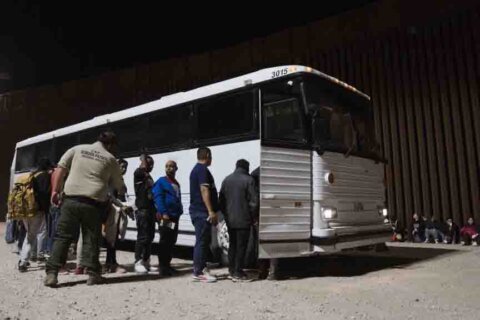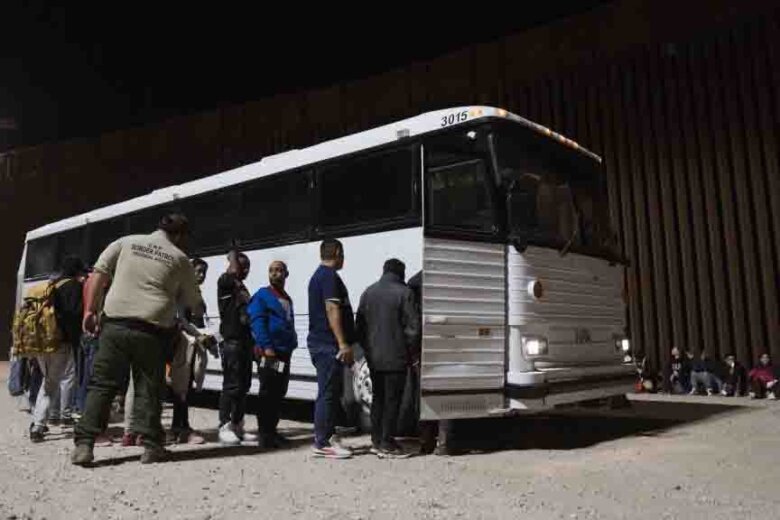
Since coronavirus restrictions for asylum seekers were allowed to expire along the southern border last month, there has not been a “huge increase” of migrants being bussed into the D.C. area.
However, SAMU First Response, the nonprofit processing migrants transported to the capital region, says that doesn’t mean bussing to the area has stopped.
About 200 buses and more than 8,500 individuals have been bussed to the region, according to the group, since the Republican governors of Texas and Arizona started sending migrants to D.C. last year to protest President Joe Biden’s immigration policies.
“The number of buses that have arrived in the area have always fluctuated,” said SAMU spokeswoman Amy Hammond. “This is something that has been the only consistent thing over time.”
Last month marked the end of pandemic-related restrictions that allowed the U.S. to quickly expel migrants at the southern border for the last three years. The provision, Title 42, authorized Customs and Border Protection to immediately remove migrants and asylum seekers.
There was concern about a potentially overwhelming number of migrants arriving in the D.C. area following the end of Title 42, but Hammond said that situation has not materialized.
“What we have seen is just a fluctuation that we’re used to in dealing with the day-to-day operations of an emergency management situation,” Hammond said.
How migrants are processed
When migrants first arrive in the nation’s capital, SAMU greets them and helps them through a reception process that includes paperwork and screening for urgent medical issues.
Many times, migrants say they are just trying to travel somewhere else immediately, such as New York City.
“We determine what their desired next steps are,” said Hammond. “We help facilitate that travel.”
For those who are not exactly sure where they want to go, or for those who are trying to work out the logistics of being received by a sponsor, SAMU takes them to a respite center for a short-term stay that typically only lasts for a few days.
If they need a more long-term stay, SAMU refers them to D.C. or Montgomery County, Maryland, for a more intensive case management process.
The D.C. Office of Migrant Services said it had no more room available to house migrant families in such situations. According to Hammond, in cases like these, SAMU makes exceptions and tries to ensure people are not sleeping on the streets.
“We have not entered a situation where we have been really concerned about not having space,” Hammond said. “Any time where we have run into something where it looks like that could be an issue, our team has worked late and kept the reception centers open to ensure that nobody didn’t have somewhere to go.”









